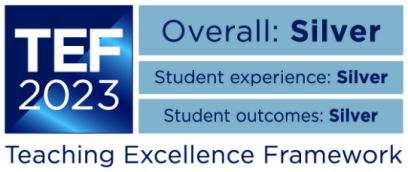BA (Hons) Psychology with Sociology

This course is fantastic for anybody who is interested in current issues and debates in society. Throughout this course you will cover a diverse range of topics, including the impact of social variables on our lives, such as class, gender, LGBT+ status and race. We also study politics, climate change, mental health, the impact of digitalisation and further psychological and social factors on young people’s development.
This programme is subject to validation / revalidation by UEA, ready to accept new entrants from September 2025. Therefore, for next year there may be some changes to this advertised course content following this process.
- Level
- 6
- Entry Point
- Sep 2025
- Duration
- Full Time, 3 years
- Venue
- Norfolk House campus
- CCN Course Code
- F0047
Reasons to study
this course
This course will equip you with the skills and knowledge to progress onto a range of social science vocations, or further study at postgraduate level and beyond. It will provide the skills and knowledge needed to interpret current issues and debates in society, to analyse and apply theories to various contemporary social issues and to demonstrate an understanding of the diverse ethical, cultural, social and political contexts in which key social issues arise. Across this course you will develop the skills to conduct social science research into these and other topics and critically evaluate research findings.
The first year of the course explores social science theories and debates. You will also develop academic and professional skills to equip you for higher education study and further vocational destinations. Topics in subsequent years will build upon year one, exploring topics in greater depth or learning new knowledge and skills that align specifically with psychology, sociology and criminology. The third year offers you the chance to use a year-long dissertation to focus in on any topic from the social sciences in which you're interested and which align with future career goals.
Dr Tim Jones - Course Leader BA (Hons) in Social Sciences
Hello, I’m Dr Tim Jones and I have over a decade’s experience teaching a wide range of Social Science and Humanities subjects at both the University of East Anglia and City College Norwich, including Sociology, Politics, Philosophy, Cultural Studies and English Literature. Please do email me any questions about the course, at any point. I’m looking forward to hearing from you!
Where will this
course take you?
A degree in Social Science provides a broad foundation of knowledge and skills that can lead to diverse career paths across various industries, such as: community support, charity work, learning support, and probation services. This degree also opens up study at postgraduate level that may equip you for more specialist roles in, for example, social work, teaching, the media or in global development.
Postgraduate courses that you can progress onto in the local area include UEA Masters degrees relating to: Politics, Philosophy and Global Development; Media; Social Work; and Organisational and Applied Psychology. You could also consider postgraduate level Teacher Training.
Course structure
This course is studied full time over three years. The programme is delivered over two days a week - 30 teaching weeks per year.
Level 4 modules
Introduction to Social Sciences Core
This module will give you a grounding in key debates, theoretical perspectives and research approaches across the social sciences, including Psychology, Sociology and Criminology. This module will set up topics and themes that will be explored in more detail across subsequent modules. The module will also ask you to link theory and research data with real-world, practical applications, considering how the knowledge and skills acquired can support future vocational destinations – how, for example, might theories and data relating to social class, gender or LGBT status assist in a classroom setting, or with probation or social work?
Academic and Professional Skills Core
This module will provide a framework of professional and academic skills at undergraduate level, promoting your recognition of the value of research, critical analysis and reporting in the context of your programme specialism. It will also aid in the identification and development of a developmental approach to learning and to the professional skills required for employment.
Having completed this module, you should be able:
- To use a range of academic approaches and techniques
- To reflect on your personal performance and development in a range of professional and academic skills
- To apply appropriate judgement in selecting and analysing academic sources and data
- To communicate effectively with peers, assessors and wider audiences in a variety of media
- To apply the Harvard Referencing System correctly and consistently in work products
- To meet the professional standards for graduate employment your industry/career path
Social Psychology Compulsory
This module provides an introduction to Social Psychology. It seeks to make you aware of psychological explanations of human behaviour in a social context. The module will enable you to understand how certain behaviours (such as pro- or anti-social) can be shaped by different social contexts and events, with an investigation also of how lessons learned from social psychology might impact attempts to negotiate global issues such as conflict or climate change.
Child Development Compulsory
The module will enable you to understand how childhood can be shaped by different social contexts and psychological events (the family, peers, society, biology and cognition) and the impact of these on development.
Diversity and Professional Standards Compulsory
TBC
Level 5 modules
Research Skills 1 Core
Across two research-based modules, we will focus on research methods and data analysis. You will practise with data sets or conducting small research projects as a group. The classic paradigms of quantitative and qualitative will be covered in depth, but given the broad nature of social sciences, these modules will also focus on ethnography, community-based action research and participatory action research.
Research Skills 2 Core
Across two research-based modules we will focus on research methods and data analysis. You will practise with data sets or conducting small research projects as a group. The classic paradigms of quantitative and qualitative will be covered in depth, but given the broad nature of social sciences, these modules will also focus on ethnography, community-based action research and participatory action research.
Mental Health and Wellbeing Compulsory
This module spans a wide range of applied psychological research, theory, and practice regarding the promotion of physical and mental health and the treatment of illness. The core themes include health psychology, behavioural medicine, and mental illness. In addition to mental and physical health, the module covers key concepts concerning the origin, presentation, and treatment of common and prevalent mental health concerns. You will gain a introduction to the social and cultural issues surrounding mental health, mental including stigma and diagnosis. Throughout lectures, the continuity between research and applied intervention will be emphasised and examples examined of modern advances in these areas.
Social Divisions and Inequalities Compulsory
This module will introduce you to the concept of social divisions and provide you with an in-depth exploration of several key examples relevant to twenty-first century society, incorporating class, gender, race, age, LGBT+, physical and mental health, disabilities and also global divisions. Key moments in the historical, social, cultural and political trajectories of these divisions will be considered, as will key patterns and trends impacting members across a variety of key social institutions; for example the family, education, health, housing, politics, employment and the media. You will also consider whether or not patterned inequalities are necessarily a negative aspect of a functioning society. The module will build from themes related to conflict vs consensus views on society introduced in “Introduction to Sociology” (Level 4), while also introducing several arguments and trends explored in more detail in “Race, Racism and Cultural Identity” (Level 6). This module also highlights other key social divisions that you may choose to make the subject of your third-year Dissertation (Level 6).
Media, Crime and Deviance Compulsory
This module will introduce you to a range of key sociological theories surrounding crime and deviance, including how these differ from biological or psychological explanations, from Merton’s strain theory to cultural criminology. It will then focus on the media and explore its relationship with crime and deviance, including to what extent the media marginalizes or amplifies sociological explanations over others. This relationship will be investigated across case-studies relating to a range of social forces and social variables, such as crime involving women as victims or perpetrators, moral panics, law-breaking related to civil disobedience or rebellion, eco-crimes and crimes involving digital technology. You will be investigating and critiquing trends and patterns in media portrayals and their potential impacts on public understandings. You will be encouraged to think of this relationship beyond the media coming after finished events and passively reporting them, considering media portrayals of crime as a key part of an unfolding narrative
Personality and Individual Difference Compulsory
This module will enable you to develop an understanding of personality development during the lifespan, self-concept, self-esteem, and temperament. There will be a focus throughout the module on developmental and environmental aspects of learner differences and learning needs. The module encourages critical evaluation of classic and modern approaches to cognitive and social development, the role of policy in learning and education, and the contribution of psychological research to SEN assessment and provision.
Level 6 modules
Psychology and Crime Compulsory
This module will provide you with core knowledge and understanding of approaches to explaining criminal behaviour and its impact upon individuals and society. Moreover, it will give an account of psychological factors that help explain crime at both a general level and in terms of specific offences. It looks at how crime commission, crime detection and crime reduction are influenced by psychological factors. The possible relationships between psychology and crime have generated a significant amount of public interest in recent years (which is manifested in examples such as the proliferation of films, TV programmes and books on issues such as serial murder). This module will explore some of the ways in which psychological perspectives contribute to the day-to-day operation of Criminal Justice and our engagements with both perpetrators and victims of crime.
International Development Compulsory
TBC
Governance, Politics and Social Policy Compulsory
This module will equip you with the tools and knowledge to understand the processes and constraints surrounding the construction of policy, to address the social issues encountered across previous modules. You will also develop an understanding of how policies formulated through local, national and international governance inform the various careers you may progress to.
Race, Racism and Cultural Identity Compulsory
This module will build from “Social Divisions and Inequalities” (Level 5) by focusing on the topics of race and ethnicity and critically evaluating, across a variety of domains, their ongoing relevance as social forces in the twenty-first century UK. We will consider biological and cultural explanations of race alongside sociological, including in terms of how they feed into historical justifications for explicit racism. We will explore the argument that the racism of the twenty-first century is distinct from the racism of previous centuries, and consider evidence of ongoing institutional racism in key UK institutions. Whiteness will be evaluated as a racial construct that seeks to remain invisible, as will arguments that certain white ethnicities are now being weaponized through political discourse and the media. Mixedness will be investigated as a category relatively newly recognized by official forms such as the UK census, producing its own lived experiences. While the focus is concertedly on race, the module will show that one aspect of race’s functioning is its influence on the lived experience of other social variables.
Research Project (Dissertation) Core
This module allows you to work on an academic research project or extended essay of your own choosing, using appropriate research tools. You will be allocated a supervisor who will advise on choice of topic and the progress of your work. You will be encouraged to use the research project or essay as a summative exercise through which to evaluate your own academic progress during the degree programme. This process will connect you to the applied nature of social science and the occupational experience of researchers. It will also provide you with practical skills in participant recruitment, research ethics and design, project management, data analysis and dissemination.
Course details
Assessment methods
This course uses a variety of exciting assessment methods to support the skills and knowledge gained throughout, such as: essays, portfolios, live presentations, examinations and professional discussions.
Awarded by
This course is awarded by the University of East Anglia and regulated by The Office for Students.


Entry requirements
UCAS points
Our typical offer is 80 UCAS tariff points.
GCSEs
English and Maths GCSE at Grade 4 / (C) or above is required.
Scottish Highers
UCAS points from Scottish Highers or Advanced Levels are accepted.
BTEC
UCAS tariff points from BTEC are accepted.
City and Guilds
City and Guilds diplomas are accepted.
Open University
Open University credits in lieu of A levels are accepted.
Access to HE Diplomas
Access to Higher Education Diplomas are accepted.
T Levels
T Levels are accepted.
Subjects with a scientific element are desirable.
We will also accept applications from students who have passed, or are predicted to gain a pass grade in the following specific course programmes:
- Access to Higher Education: Humanities and Social Sciences, Level 3
- Access to Higher Education: Counselling, Level 3
Contextualised Offer
You may also be eligible for a contextualised offer for this programme, please see our Contextualised Offer page for further details and to check your eligibility.
Mature applicants, who do not have relevant UCAS points, are welcome if you can demonstrate appropriate qualifications and suitable experience, and will be reviewed on a case-by-case basis. You should demonstrate evidence of an appropriate qualification, experience in the field or a strong interest.
AP(C/E)L & RPEL may be considered for non-standard entry.
For international applications Academic IELTS at level 6 (minimum 5.5 in all components) is required. International candidates are also actively encouraged to access the International Students webpage.
We seek to bring on keen students who don’t meet these requirements but have relevant life and/or vocational experience, so these requirements are negotiable and suitability for the course may be alternatively assessed via interview and/or a sample piece of work, particularly for UK students meeting eligibility criteria such as previous receipt of Free School Meals, or being a young person estranged from their parents.
Course fees
£9,250 per year for UK students.
£14,335 per year for international students (students from outside of the UK).
Other course costs
There are unlikely to be any additional costs. Course material is provided digitally, including digital access to complete text-books as recommended core course reading. You may choose to buy additional textbooks for private use, but will have full access to the hardcopy resources available at the University of East Anglia’s substantial library. Much of the recommended wider research will include digital journal access provided by City College Norwich, while you will have full access to key Microsoft Office programmes through your CCN account.
We were awarded a TEF Silver rating overall in 2023, achieving this for both student experience and student outcomes.

Search courses
Search CCN HE



